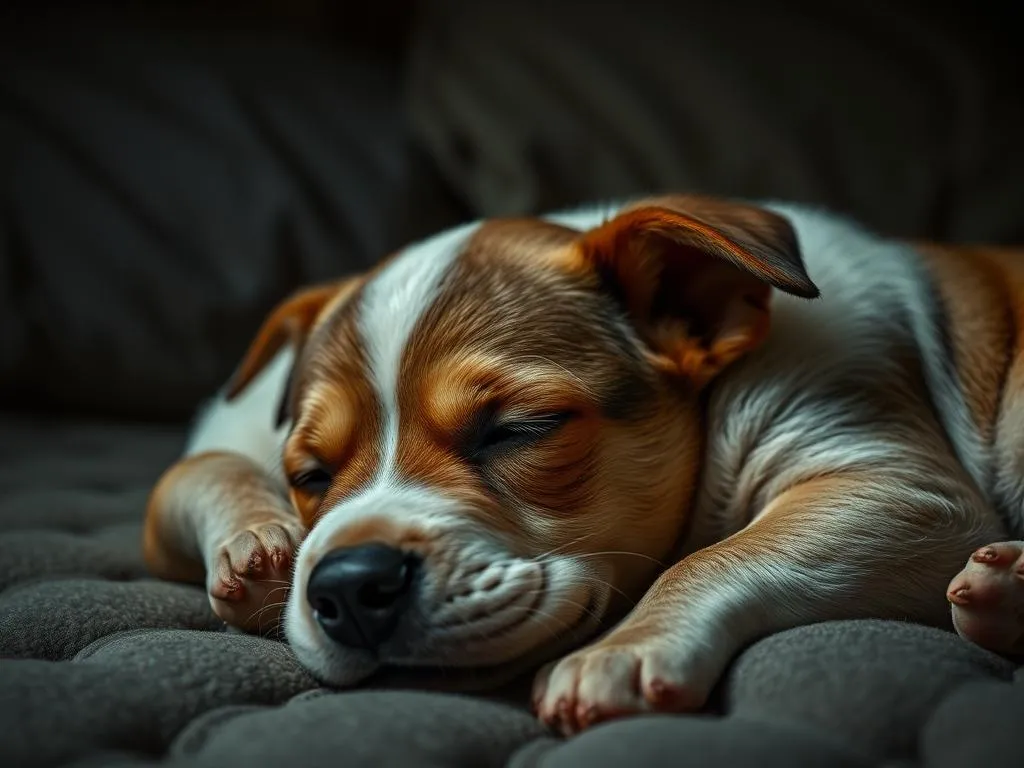
Puppies are bundles of energy and joy, but just like human children, they require a lot of sleep to grow and develop properly. Sleep is crucial for their physical and mental well-being, impacting their growth, immune system, and overall health. One question that often arises among new puppy owners is: should puppies sleep in the dark? This article delves into the intricacies of puppy sleep habits, the importance of their sleeping environment, and the overall impact on their health.
Understanding Puppy Sleep Needs
Importance of Sleep for Puppies
Sleep is an essential component of a puppy’s growth and development, facilitating physical recovery, brain function, and emotional stability. During sleep, puppies engage in critical processes such as muscle development and memory consolidation. Puppies generally require more sleep than adult dogs, as their rapidly growing bodies need ample rest to support their development.
Sleep Duration for Puppies
On average, puppies sleep between 16-20 hours a day. This extensive sleep duration allows for the high energy levels needed while they are awake. Several factors influence how long a puppy will sleep, including:
– Age: Younger puppies typically need more sleep than older ones.
– Activity Level: Highly active puppies may require more rest as opposed to those that are less active.
– Health: Health issues can significantly affect a puppy’s sleep duration and quality.
The Role of Environment in Puppy Sleep
Ideal Sleeping Conditions
Creating a comfortable and safe sleeping area is pivotal for a puppy’s quality of sleep. Ideal conditions include:
– Comfortable Bedding: A soft bed or blanket that provides warmth and support.
– Optimal Temperature: Puppies thrive in a temperature range of 68-72°F (20-22°C). It’s essential to ensure they are not too hot or too cold.
– Safe Space: The sleeping area should be free from hazards and distractions, allowing the puppy to feel secure.
Should Puppies Sleep in the Dark?
The question of whether puppies should sleep in the dark is multifaceted. On one hand, darkness can create a tranquil environment conducive to sleep, promoting the release of melatonin, a hormone that regulates sleep. On the other hand, some puppies may feel anxious in complete darkness due to their natural instincts, which can lead to restlessness or fear.
- Arguments for Sleeping in the Dark:
- Mimics natural conditions.
- Encourages deeper sleep cycles.
-
Reduces distractions, helping puppies settle down.
-
Arguments Against Sleeping in the Dark:
- Some puppies might feel insecure or anxious in total darkness.
- Certain breeds may benefit from a softly lit environment.
Impact of Light Exposure
Light exposure significantly affects puppies’ sleep cycles, particularly their circadian rhythms. Puppies exposed to bright light during the evening hours may struggle to wind down and fall asleep. Here are some recommendations based on puppy age:
– Younger Puppies: Those under six months may benefit from a dimly lit environment to help them feel secure while they adjust to their new home.
– Older Puppies: As they grow, gradually transitioning to darker sleeping conditions can help establish healthier sleep patterns.
Creating a Sleep-Friendly Environment
Designing the Sleep Space
Choosing the right location for your puppy’s sleeping area is critical. Here are some tips:
– Quiet Area: Select a location away from the hustle and bustle of daily life to minimize disturbances.
– Cozy Nook: Create a designated space with comfortable bedding and toys that your puppy can associate with sleep.
– Puppy-Proofing: Ensure the area is safe by removing any small objects, cords, or potential hazards.
Noise and Distractions
Minimizing noise and distractions is vital for a peaceful sleep environment. Here are some strategies:
– White Noise Machines: Consider using white noise to mask disruptive sounds.
– Calm Atmosphere: Keep the sleeping area calm, especially during nighttime.
Use of Night Lights
The pros and cons of using night lights for puppies should be weighed carefully.
– Pros: Can help alleviate anxiety for puppies who fear complete darkness.
– Cons: May disrupt sleep cycles if the light is too bright.
If you choose to use a night light, opt for a soft, warm light that won’t be too stimulating.
Common Sleep-Related Issues in Puppies
Nighttime Anxiety
Puppies, especially those newly adopted, may exhibit signs of anxiety during sleep. Symptoms include whining, restlessness, and excessive barking. Here are some tips to ease nighttime anxiety:
– Crate Training: Gradually introduce your puppy to their crate as a safe space.
– Comfort Items: Provide toys or a blanket that carries their mother’s scent to promote comfort.
Sleep Disorders
Puppies can experience sleep disorders just like humans. Some common issues include:
– Sleep Apnea: Characterized by interrupted breathing during sleep.
– Insomnia: Difficulty falling or staying asleep.
If you suspect your puppy is experiencing severe sleep issues, consult a veterinarian for advice and treatment.
Adjusting Sleep Habits
As puppies grow, their sleep needs change. Helping them adjust to new sleep routines involves:
– Consistent Schedule: Establish regular sleep and wake times to create a routine.
– Gradual Changes: Slowly adjust their sleeping environment to prevent stress.
Health Considerations Related to Sleep
Impact of Poor Sleep on Health
Lack of adequate sleep can lead to various health issues in puppies, including:
– Weakened Immune System: Increased susceptibility to infections.
– Behavioral Issues: Hyperactivity, anxiety, or aggression may arise from sleep deprivation.
Regular veterinary check-ups are essential to monitor a puppy’s overall health and sleep quality.
Nutrition and Sleep
What puppies eat also influences their sleep quality. A well-balanced diet can help promote better sleep. Here are some dietary considerations:
– High-Quality Protein: Essential for growth and muscle development.
– Omega-3 Fatty Acids: Can improve brain function and overall health.
Consider consulting with a veterinarian to devise a diet plan that supports healthy sleep.
Conclusion
Understanding puppy sleep needs is crucial for any dog owner. The significance of a suitable sleeping environment cannot be overstated, as it directly impacts a puppy’s health and well-being. Observing your puppy and making necessary adjustments can lead to optimal sleep health, fostering a happy and healthy companion for years to come.
FAQs
How can I tell if my puppy is getting enough sleep?
Look for signs such as growth spurts, calm behavior when awake, and a regular sleeping schedule. If your puppy seems overly tired or restless, they may not be getting enough sleep.
What should I do if my puppy refuses to sleep in the dark?
Gradually acclimate your puppy to darker environments. Consider using a night light if your puppy shows signs of anxiety in complete darkness.
Are there specific breeds that require different sleep conditions?
Yes, some breeds are more sensitive to light and noise. For instance, toy breeds might prefer a quieter and dimmer environment compared to larger breeds.
Can I train my puppy to sleep in a different environment?
Yes, with patience and consistency, you can train your puppy to adapt to new sleeping conditions. Use positive reinforcement to encourage them to feel comfortable in their new space.









